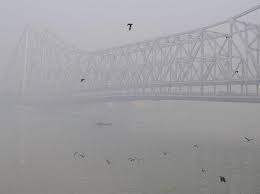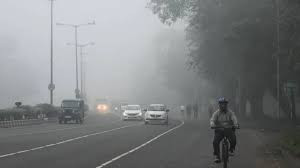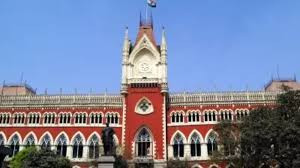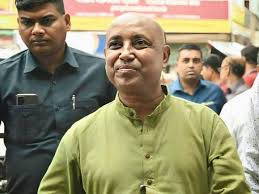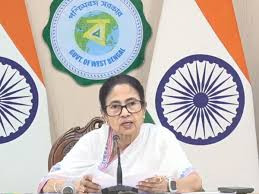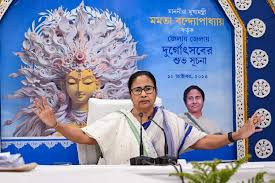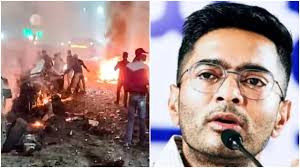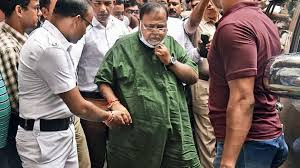BJP MP Soumitra Khan Sparks Controversy with Call for Land Sales Exclusively to 'Sanatanis'
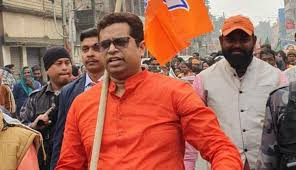
IIE DIGITAL DESK : The statement that has ignited a firestorm of political and social debate, Bharatiya Janata Party (BJP) Member of Parliament Soumitra Khan has advocated for land transactions to be restricted exclusively to 'Sanatanis'—a term traditionally referring to followers of Sanatan Dharma, or Hinduism. The remark, made during a public address in West Bengal, has drawn sharp criticism from opposition parties and civil society groups, who view it as a divisive and unconstitutional proposition.
Khan, who represents the Bishnupur constituency in West Bengal, reportedly made the statement while addressing a gathering of party workers and supporters. He emphasized the need to protect what he described as the "cultural and religious integrity" of the region, suggesting that land ownership should be confined to those adhering to Sanatan Dharma.
"For the preservation of our traditions and values, it is imperative that land remains in the hands of Sanatanis," Khan was quoted as saying. "This is not about discrimination but about safeguarding our heritage."
The statement has been met with widespread condemnation. Leaders from the Trinamool Congress (TMC), the principal opposition party in West Bengal, have accused Khan of promoting religious exclusivity and violating the secular principles enshrined in the Indian Constitution.
"Such statements are not only unconstitutional but also dangerous," said a senior TMC leader. "They threaten the communal harmony that has been the hallmark of our state."
Legal experts have also weighed in, pointing out that any attempt to restrict land sales based on religious identity would contravene multiple provisions of the Constitution, including the right to equality and the right to property.
"The Constitution guarantees equal rights to all citizens, irrespective of their religion," said a constitutional law scholar. "Any policy or law that discriminates on the basis of religion would be struck down by the courts."
Civil society organizations have expressed concern that such rhetoric could incite communal tensions, particularly in a state like West Bengal, which has a diverse religious population. They have called on political leaders to refrain from making inflammatory statements that could disrupt social harmony.
In response to the backlash, Khan has defended his remarks, asserting that his intention was to protect cultural heritage rather than to discriminate. "My statement has been misinterpreted," he said in a follow-up interview. "I was merely emphasizing the importance of preserving our cultural identity."(The Economic Times)
The BJP's central leadership has not officially commented on the controversy, but party insiders suggest that there is concern about the potential political fallout. West Bengal is a key battleground state, and the party has been working to expand its base among various communities.
This incident is not the first time that Khan has been at the center of controversy. Previously, he made headlines for his public feud with his estranged wife, Sujata Mondal, who is a TMC leader and his political rival in the Bishnupur constituency. Their personal and political conflicts have been widely covered in the media, adding to the volatile political climate in the region.(The Economic Times)
As the debate over Khan's statement continues, observers note that it reflects a broader trend of politicizing religious identity in Indian politics. Analysts warn that such strategies may yield short-term electoral gains but could have long-term consequences for social cohesion and democratic values.
"Using religion as a tool for political mobilization is a risky game," said a political analyst. "It can deepen divisions and undermine the secular fabric of the nation."
The controversy also raises questions about the role of political parties in upholding constitutional values. While freedom of speech allows for a wide range of opinions, leaders are expected to exercise this right responsibly, especially when their words can influence public sentiment and policy.
As of now, there is no indication that any legislative action will be taken in response to Khan's proposal. However, the incident serves as a reminder of the ongoing tensions between religious identity and democratic principles in India's complex political landscape.
In the coming days, it remains to be seen how this controversy will impact the political dynamics in West Bengal and beyond. Observers will be watching closely to see whether the BJP distances itself from Khan's remarks or whether this signals a broader shift in the party's approach to issues of religion and land ownership.
For now, the debate continues, highlighting the delicate balance between cultural preservation and constitutional rights in a diverse and pluralistic society.
You might also like!


